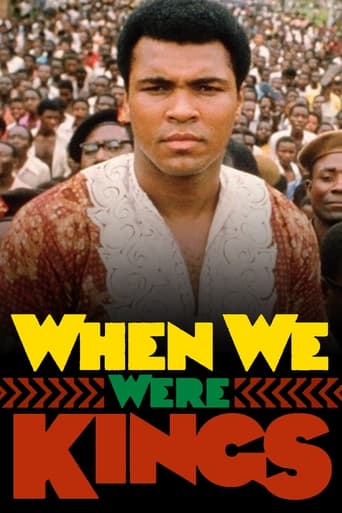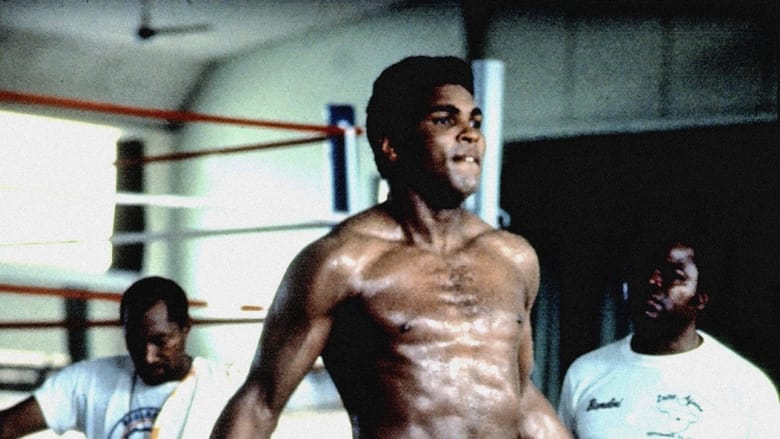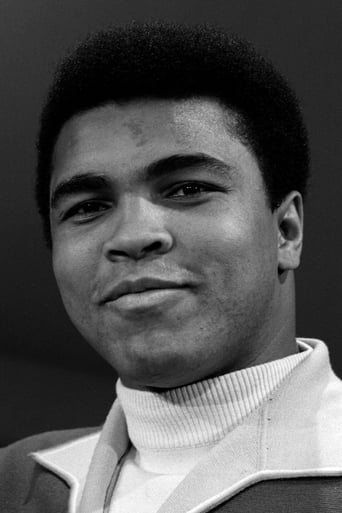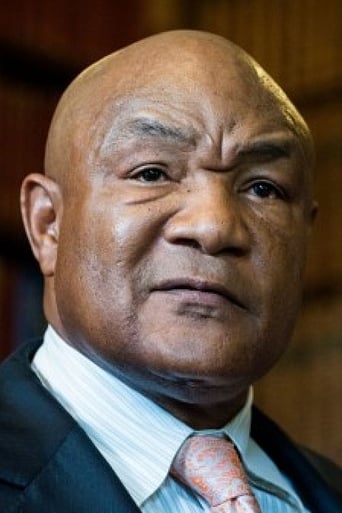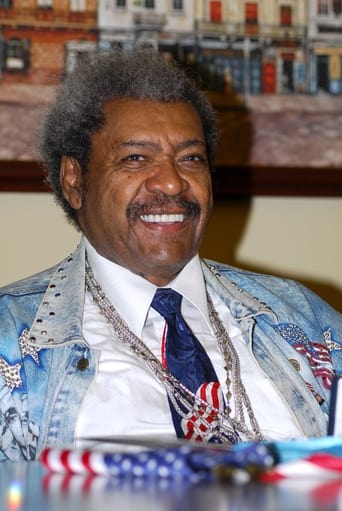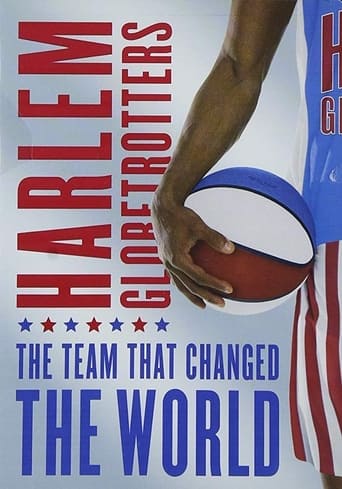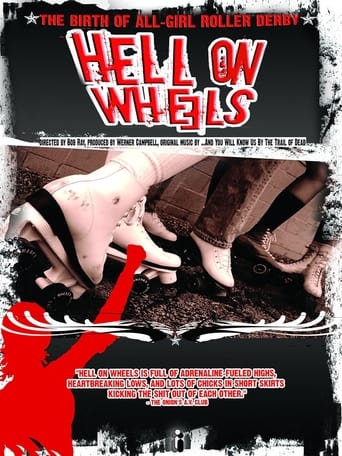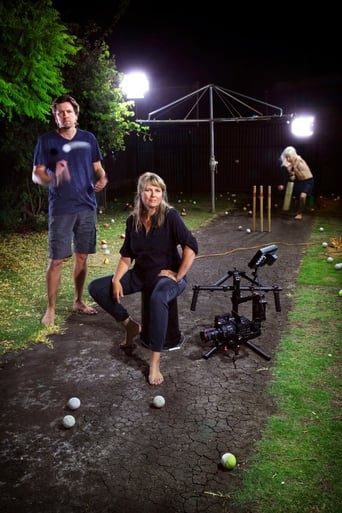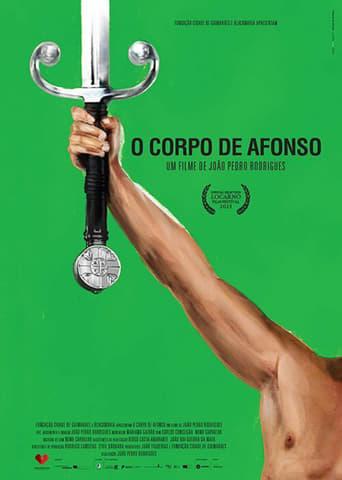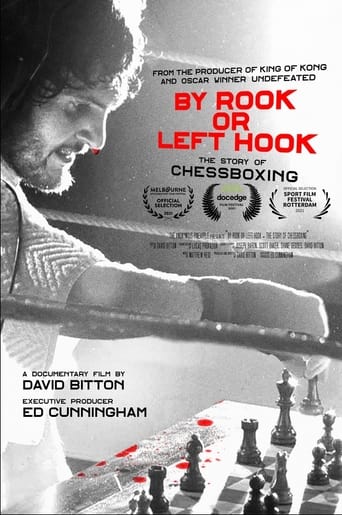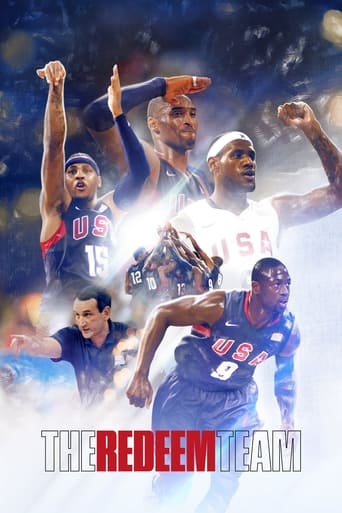When We Were Kings (1996)
It's 1974. Muhammad Ali is 32 and thought by many to be past his prime. George Foreman is ten years younger and the heavyweight champion of the world. Promoter Don King wants to make a name for himself and offers both fighters five million dollars apiece to fight one another, and when they accept, King has only to come up with the money. He finds a willing backer in Mobutu Sese Suko, the dictator of Zaire, and the "Rumble in the Jungle" is set, including a musical festival featuring some of America's top black performers, like James Brown and B.B. King.
Watch Trailer
Free Trial Channels
Cast


Similar titles
Reviews
Did you people see the same film I saw?
All of these films share one commonality, that being a kind of emotional center that humanizes a cast of monsters.
It is interesting even when nothing much happens, which is for most of its 3-hour running time. Read full review
This is a coming of age storyline that you've seen in one form or another for decades. It takes a truly unique voice to make yet another one worth watching.
If such an event as the Foreman/Ali fight occurred today, this film would probably not be such a big deal. That is because we would have pretty much round the clock cable coverage of the event courtesy ESPN. However, given that this fight occurred in 1974, this is the closest thing you are going to get to the kind of coverage you would see if that event was held today. In spite of the reversal of fortune that this fight gave to both Foreman and Ali's careers, this film really does not focus on either one of these individual fighters that much. Instead, it gives you a real feel for the excitement surrounding the fight overall, with significant commentary by George Plimpton and Norman Mailer, who were both there to cover the event.Of course there are segments on Foreman and Ali, and at the end, after the segment on the fight itself, there is basically a tribute to Ali both through his words and then through a series of still shots showing highlights of his life and career. However, I also learned quite a bit about Don King, the guy who made the fight happen, and how this event helped him "break out of the pack" when it came to managing fights and fighters. However, there is no romanticizing of the man. They mention both his strong points - his incredible intellect and that he always seemed to have a quotation from Shakespeare for ever occasion - and his weaknesses, mainly that he was "amoral in his handling of the individual fighters' careers". These are the film's words, not mine. Interviews and footage of the fighters and their staff preparing both physically and mentally for the big "rumble in the jungle" are skillfully interspersed with footage of the sportswriters of the 70's marking up copy and working old-fashioned teletypes back in the age before computers were common, along with film of the inhabitants of Zaire going about their daily life often balancing huge baskets on their heads, and also shots of the live entertainment going on including some great footage of B.B. King and James Brown. Also included is a little bit of explanation as to why the people of Zaire found Ali so endearing versus George Foreman. They said they found Ali to come across as "a real person". Apparently the fact that Foreman was so monosyllabic most of the time did not help his image overseas.The footage of the fight itself is very good considering it was shot in 1974. Mailer and Plimpton do a great job of explaining everything that is going on at each phase of the fight, including trying to get inside Ali's head as to what he might have been thinking as he employed first one strategy and then another against his mountain of an opponent.The film does mention that losing to Ali threw Foreman into a two year depression, and when he emerged he reinvented himself to the point that, as Norman Mailer says in the film, "you would be hard pressed to find someone more affable than George Foreman is today." The postscript on Ali is interesting too. Mailer mentions that after this fight, Ali went on to fight 22 times, and all of these additional fights ruined his health. Mailer mentions that it is often said that you wind up destroying the thing you love, but in Ali's case it was the thing he loved that ultimately destroyed him, or at least his physical health.This is a very good and complete portrait of a unique sports event and the very interesting people involved. You don't have to be a boxing fan to enjoy it. If you enjoy a good tale about the triumph of an underdog, the intersection of two very different cultures, and anecdotes about some of the more interesting sports figures of the 20th century, you'll like this film. I highly recommend it.
This is the Oscar winning documentary about the legendary boxing bout between Muhammad Ali, the challenger and George Foreman, who was the reigning world heavy weight boxing champion of the time.The match became popular as "Rumble in the Jungle". it was held at Kinshasa, Zaire. Both the fighters were blacks. However, Ali was revered as a demi-God because he had spoken about the atrocities which the African Americans were facing in the US and had refused to go and fight in Vietnam. He was considered a true representative of the blacks.George Foreman, as the documentary says, was "blacker than Ali". But still he was taken as the white devil incarnate.The match was promoted by Don King. the President of Zaire decided to give the financial rewards to the fighters as he planned to use the bout to promote his country and his despotic rule.the build up to the fight and then the fight itself have been captured perfectly. there are glimpses about Ali's interaction with the citizens of Zaire who constantly urge him to "Ali, Boma Ye" which means "Ali, Kill Him".The movie is very gripping and shows the human face of the Gods of the Gloves. Two thumbs up.
Inspiring, amazing true story of Ali's comeback/retirement fight against George Foreman. Leon Gast, with help from Taylor Hackford, has taken the times, the black cause, and two giants of boxing and fashioned a fascinating narrative and an insightful culture study of a nation and its people. It's true the material is to die for, but Gast knew just what to do with it.I am no boxing fan, and consider the sport uncultured and physically dangerous, yet I was glued to this doco from start to finish. Especially insightful were the comments from the then fight writers, including Norman Mailer.Saturday, June 26, 1999 - Video
Probably what makes "When We Were Kings" especially effective is the opening: Muhammad Ali, explaining his plan to participate in a boxing match in Zaire, declares "Africa is the home of the black man." I had actually never heard of the Rumble in the Jungle before this documentary came out, but one need only watch it to see just how great Ali was (and always will be). As for the possibility that it meanders too much with the interviews, I say that it's good to get different people's insights into what an important part of our national heritage Ali is.So anyway, this is a documentary that I wholeheartedly recommend. Also featuring George Foreman (happy birthday, George!), James Brown (RIP), Spike Lee, B.B. King and Mobutu Sese Seko in footage.

